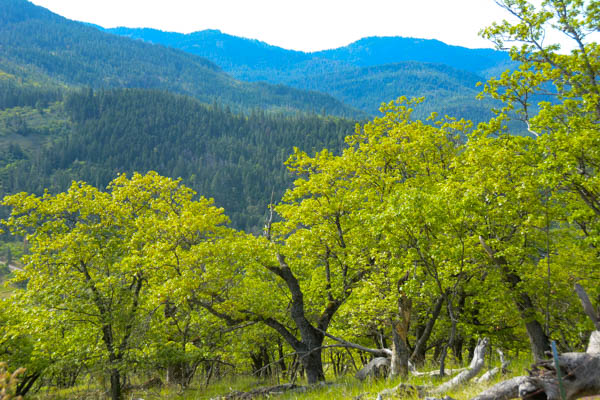wildfire ecology
-
I continuously see articles in the media about “good fire, ” defined as frequent and low–severity. In other words, such fire seldom kills mature trees. These fires, we are told, mimic “historical” conditions, creating “healthy” ecosystems by clearing away fuels without killing mature trees. A “good fire” by happy coincidence reduces high-severity blazes or so…
-
On April 24th, 2024, the Vermont Law and Graduate School and Wild Horse Fire Brigade sent a letter to the Bureau of Land Management’s (BLM) District office in Medford, Oregon, proposing a collaboration between the Wild Horse (feral) Fire Brigade and the BLM to reduce wildfire threat through feral horse grazing on the Cascade-Siskiyou National…
-
Giant sequoia at Sequoia National Park, California. Photo George Wuerthner One significant problem with explaining complex ecological stories is that many journalists are unprepared to interpret scientific research. A recent report in the Washington Post on a University of California Irvine study of wildfire fuels in California’s Sierra Nevada is a classic example of a…
-
Pondoersa pine forests dominate the lower elevations of the Blue Mountain Ecoregion. Photo George Wuerthner The Blue Mountains Complex of Oregon stretches east to west from the Snake River to the Cascades. The Blue Mountain Complex is made up of sub-ranges, including the Wallowa, Elkhorns, Strawberries, Aldrich, and Ochoco. The Wallowa Mountains near Enterprise, Oregon.…
-
Prescribed burns are perceived to be a panacea for reducing wildfire, but there are many problems with implementation. George Wuerthner Many people in New Mexico are calling for an investigation of the practice of prescribed burning in light of the recent immense Calf Canyon and Hermits Peak wildfires that began as prescribed burns. The combined…
-
Prescribed fire and cultural burning by Native Americans is often promoted as a means of reducing large blazes across the West. There are many reasons to question such assumptions. Photo George Wuerthner Here are seven articles (attached below) from today’s news cycle. They promote the idea that our forests need to be “gardened” by human…
-
Thinning is often justified on the assumption that reducing “fuels” will slow or stop large blazes, but there is more nuance to the issue than just fuels. Photo George Wuerthner One frequently hears from proponents of thinning that active forest management can reduce fire intensity and thus is a beneficial policy to reduce large…
-
The wind-driven pattern of fire in the 1988 Yellowstone fires. Photo George Wuerthner A new documentary titled The West Is Burning continues to promote a flawed narrative that large blazes are a consequence of “fire suppression” and “fuel build-up.” Starting from this perspective, it promotes policies like thinning the forest and prescribed burning to counter…

